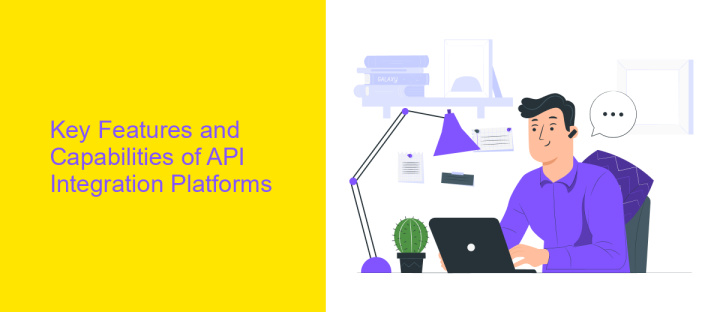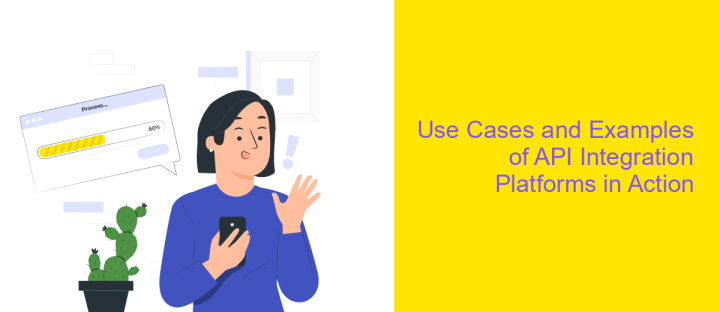What is API Integration Platform
An API Integration Platform is a powerful tool that enables seamless connectivity and communication between various software applications. By acting as a bridge, it allows disparate systems to interact and share data efficiently, streamlining business processes and enhancing functionality. In today's digital landscape, leveraging an API Integration Platform is crucial for organizations aiming to optimize operations, improve scalability, and drive innovation across their technology ecosystems.
Understanding API Integration Platforms: A Definition and Overview
API Integration Platforms are essential tools that facilitate seamless communication between diverse software applications. These platforms serve as intermediaries, enabling different systems to exchange data and functionalities efficiently. By providing a unified interface, they simplify the process of connecting various APIs, reducing the complexity and time required for integration.
- Streamlined connectivity between disparate systems.
- Enhanced data flow and interoperability.
- Reduced development time and costs.
- Increased flexibility and scalability.
- Improved security and compliance management.
These platforms are indispensable for businesses aiming to enhance their digital ecosystems. They allow organizations to leverage existing technologies while integrating new solutions, ensuring that all components work harmoniously. As a result, businesses can focus on innovation and growth, confident that their software infrastructure is robust and adaptable. An API Integration Platform is not just a technical tool; it's a strategic asset that drives efficiency and competitive advantage.
Key Features and Capabilities of API Integration Platforms

API integration platforms offer a robust set of features designed to streamline connectivity between various software applications. These platforms typically provide a user-friendly interface that simplifies the process of connecting APIs without requiring extensive coding knowledge. Key features include automated workflows that trigger actions based on specific events, data transformation tools to ensure compatibility between different systems, and real-time data synchronization to maintain up-to-date information across all connected applications. Additionally, these platforms often support a wide range of APIs, making them versatile solutions for businesses with diverse integration needs.
Security and scalability are also crucial capabilities of API integration platforms. They employ advanced security protocols to protect data during transmission and offer scalable solutions that grow with your business. Platforms like ApiX-Drive further enhance integration processes by providing pre-built connectors and templates, reducing the time and effort needed to set up integrations. With features such as error monitoring and detailed analytics, businesses can ensure seamless operations and gain insights into their integration performance, allowing for continuous optimization and efficiency improvements.
Benefits of Using an API Integration Platform

API integration platforms have become essential tools for businesses looking to streamline operations and enhance connectivity between various software systems. By leveraging these platforms, companies can automate workflows, reduce manual data entry, and ensure seamless data exchange across applications. This not only improves efficiency but also enables organizations to respond more quickly to market changes and customer needs.
- Improved Efficiency: Automating data transfers and processes reduces the need for manual intervention, minimizing errors and saving time.
- Scalability: API integration platforms allow businesses to easily scale their operations by connecting new applications and services as needed.
- Enhanced Data Accuracy: By ensuring consistent and real-time data flow, these platforms help maintain data integrity across systems.
- Cost Savings: Reducing manual tasks and optimizing workflows can lead to significant cost reductions over time.
- Better Customer Experience: Faster and more accurate data processing results in improved service delivery and customer satisfaction.
In conclusion, utilizing an API integration platform offers numerous advantages that can drive business growth and innovation. By simplifying complex integrations and fostering a more connected ecosystem, companies can focus on their core competencies and strategic initiatives, ultimately gaining a competitive edge in their industry.
Use Cases and Examples of API Integration Platforms in Action

API integration platforms have become essential tools for businesses aiming to streamline operations and enhance connectivity. By facilitating seamless communication between different software systems, these platforms enable organizations to automate workflows, reduce manual errors, and improve data accuracy.
One prominent use case is in e-commerce, where API integration platforms connect online stores with payment gateways, inventory management systems, and shipping providers. This integration ensures real-time updates on stock levels, order processing, and delivery tracking, enhancing the customer experience.
- Healthcare: Integrating patient management systems with electronic health records for better patient care.
- Finance: Connecting banking apps with financial analysis tools for real-time data insights.
- Marketing: Syncing CRM platforms with email marketing tools to automate customer engagement.
These examples demonstrate the versatility of API integration platforms across various industries. By leveraging these tools, businesses can achieve greater efficiency, scalability, and innovation. As technology continues to evolve, the role of API integration platforms will only become more pivotal in driving digital transformation.


Choosing the Right API Integration Platform for Your Needs
When selecting an API integration platform, it is crucial to consider your specific business needs and technical requirements. Start by evaluating the platform's compatibility with your existing systems and the range of APIs it supports. Consider the ease of use, especially if your team lacks extensive technical expertise. A user-friendly interface can significantly reduce the learning curve and facilitate smoother integration processes. Additionally, assess the platform's scalability and flexibility to ensure it can grow alongside your business and adapt to changing demands.
Security and reliability are also paramount when choosing an API integration platform. Ensure the platform offers robust security measures, such as data encryption and authentication protocols, to protect sensitive information. Platforms like ApiX-Drive provide seamless integration capabilities with a wide array of services, offering automation and real-time data synchronization. Lastly, consider the level of customer support and documentation available, as these resources can be invaluable when troubleshooting issues or optimizing integrations. By carefully weighing these factors, you can select an API integration platform that aligns with your business objectives and enhances operational efficiency.
FAQ
What is an API Integration Platform?
Why do businesses need an API Integration Platform?
How does an API Integration Platform work?
What are the benefits of using an API Integration Platform?
Can non-technical users utilize an API Integration Platform?
Apix-Drive is a simple and efficient system connector that will help you automate routine tasks and optimize business processes. You can save time and money, direct these resources to more important purposes. Test ApiX-Drive and make sure that this tool will relieve your employees and after 5 minutes of settings your business will start working faster.

